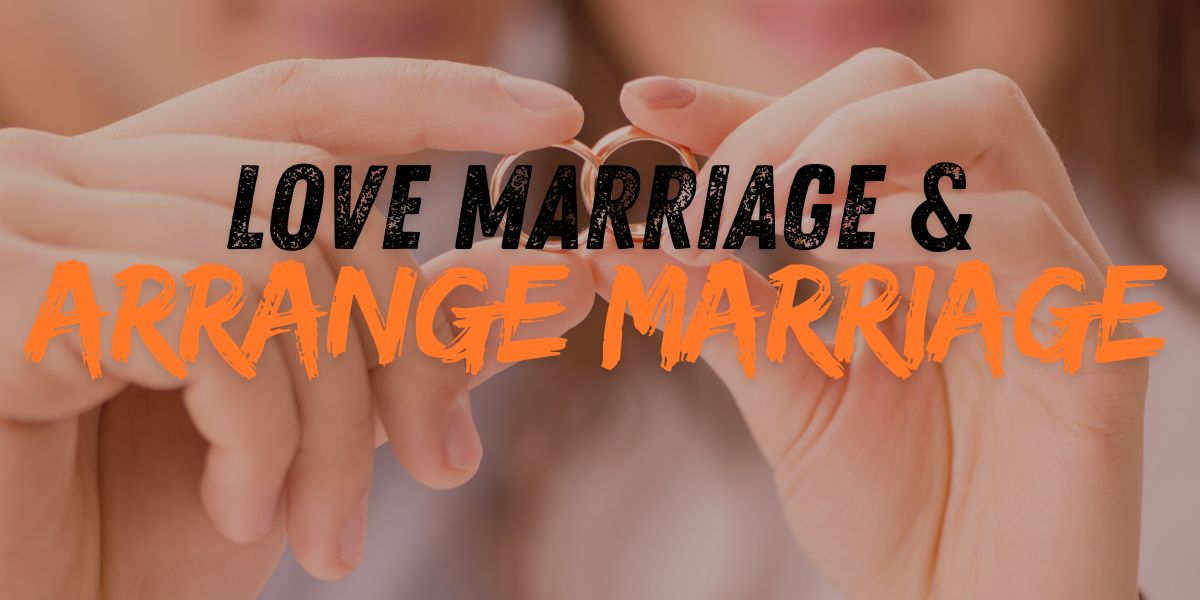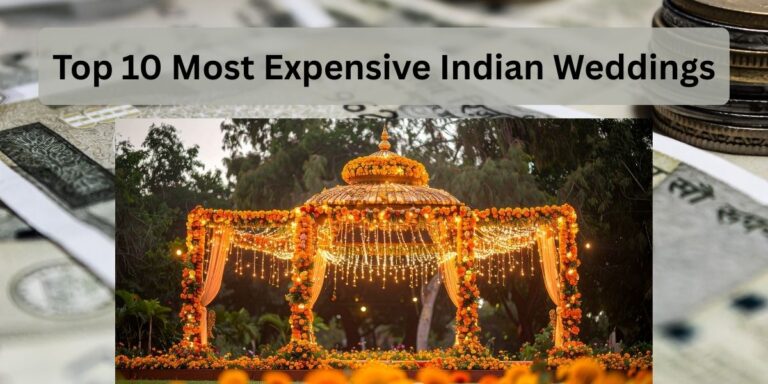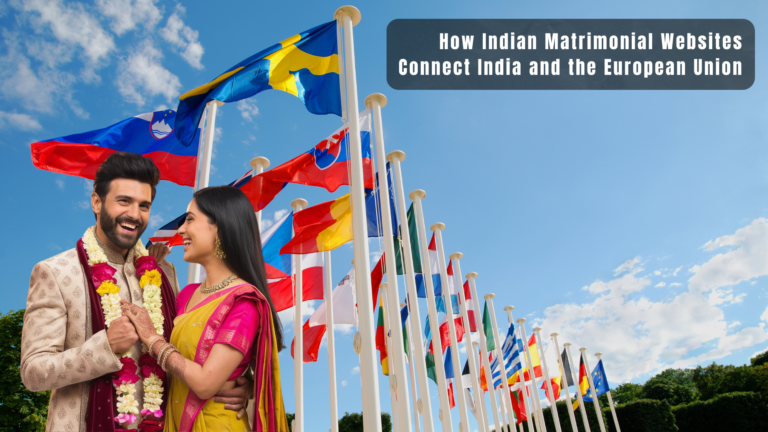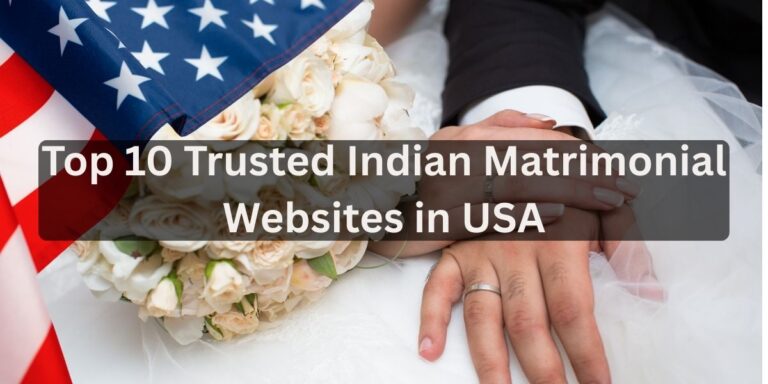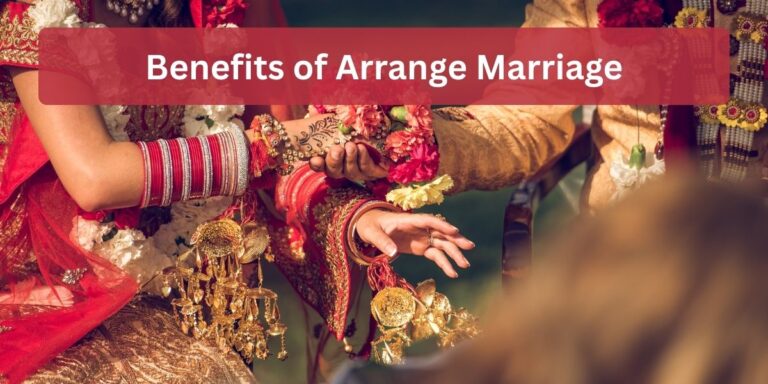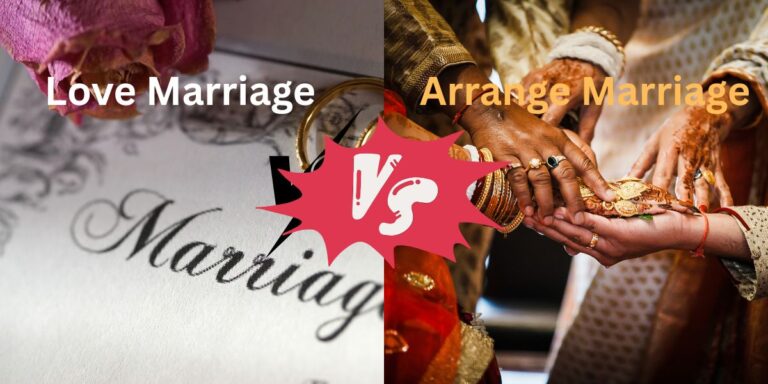Difference Between Love Marriage And Arrange Marriage
Marriage is a union between two individuals that is legally and socially recognized. Difference Between Love Marriage And Arrange Marriage This union establishes rights and obligations between the couple as well as between them and their respective families, communities, and society. Although the definition and practices of marriage can vary across different cultures, religions, and legal jurisdictions.
WHAT IS LOVE MARRIAGE?
A love marriage is a type of marital union where the individuals involved select their partners based on mutual affection, romantic feelings, and personal preferences. In a love marriage, partners decide to get married primarily because of their emotional attachment and romantic connection, rather than external factors like societal expectations or family considerations. It represents a contemporary approach to partner selection, emphasizing the importance of romantic love, emotional compatibility, and mutual respect in the formation of marital relationships. They offer individuals an opportunity to marry based on personal choice and romantic attachment, leading to fulfilling and satisfying unions based on love and affection.
WHAT IS ARRANGE MARRIAGE?
In Arranged marriage, people, relatives, society, or best help to find a partner for the bride or groom. In ARRANGE MARRIAGE the decision to marry is usually based on factors such as family compatibility, social status, financial considerations, and cultural or religious alignment, rather than solely on the romantic feelings or personal preferences of the individuals involved. In these strangers meet up based on matrimonial sites, or astrologers and build a new life.
The Difference Between Love Marriage And Arrange Marriage
Love marriages are a type of union where partners choose each other based on romantic feelings, emotional connection, and mutual affection that develop over time. This decision is made autonomously by the individual’s involvement, without significant influence from external parties such as family members or matrimonial sites. Typically, in this both get involved in a period of courtship during which the couple gets to know each other intimately, builds a strong emotional bond, evaluates their compatibility, and then decides to perform marriage and build a new life
While love marriages give couples personal choice and freedom, they may encounter challenges related to societal approval, cultural norms, and familial expectations, particularly in conservative or traditional societies. We also consider it as exogamy marriage. However, as societies that value individual autonomy and personal freedom become more prevalent, love marriages are also becoming more socially acceptable in many cultures. It builds a strong emotional bond and affectionate relationship between the partners, which serves as the foundation for them best marriage life.
Let’s Talk About Arrange Marriage
Arranged marriages involve the selection and arrangement of a union by family members, relatives, or matrimonial sites. Factors such as family compatibility, social status, cultural background, financial considerations, and practical considerations play a significant role in the decision to marry. Romantic feelings or personal preferences may not be the sole basis for the decision. Typically, the partners may have minimal or no acquaintance with each other, and intermediaries facilitate the marriage proposal and subsequent arrangements on behalf of the families. Arranged marriages emphasize family and community involvement and can provide stability, support, and continuity of cultural traditions, values, and social ties within the extended family network. Many matrimonial sites help to find your match according to your preference.
Love marriages are based on personal choice and romantic attraction, while arranged marriages involve the intervention of family members, intermediaries, or matrimonial sites in arranging the union based on various social, cultural, and practical considerations. Both types of marriages have their pros and cons, and the suitability of each approach may vary depending on individual preferences, cultural norms, and societal expectations.
Let’s Discuss the Pros and Cons of Arrange Marriage and Love Marriage
ARRANGED MARRIAGE
PROS: –
Family Support: Arranged marriages often have the support and approval of families and society providing a stable foundation for relationships.
Cultural Continuity: Arranged marriages can help maintain cultural traditions and values within families and communities and help to tie up with their culture and relation.
Reduced Pressure: In some cultures, family members take on the role of matrimonial sites to relieve the pressure of finding a suitable partner.
Consideration of Compatibility Factors: Arranged marriages consider factors such as financial stability, social status, and religious or cultural compatibility, which can contribute to long-term marital stability. Additionally, the involvement of family members or matrimonial sites can provide mediation and support to resolve conflicts or issues within the marriage.
CONS: –
Limited Autonomy: Individuals may have limited autonomy in choosing their partners, leading to feelings of powerlessness or resentment. Individuals only must choose between the same caste or with the person who follows the same caste rule.
Lack of Emotional Connection: Couples in arranged marriages may initially lack the deep emotional connection and romantic bond often found in love marriages.
Mismatched Expectations: Differences in values, interests, or personalities can cause compatibility issues and dissatisfaction in arranged marriages.
Pressure to Conform: Individuals may feel societal or familial pressure to conform, sacrificing their happiness or desires.
Potential for Exploitation: In some cases, individuals may be coerced or forced into arranged marriages against their will, leading to situations of exploitation or abuse. People get emotionally torched by their parents or society.
LOVE MARRIAGE
PROS: –
Personal Choice: Individuals are based on personal choice and romantic attraction, allowing individuals to marry partners they genuinely love and care for whom they have romantic feelings.
Strong Emotional Bond: Couples who get married for love often share a deep emotional bond and mutual understanding, which can contribute to a fulfilling and supportive relationship.
Shared Values and Interests: Love marriages often involve partners who share similar values, interests, and goals, which can enhance compatibility and harmony in the relationship.
Higher Satisfaction: According to research, couples who have performed love marriages report higher levels of marital satisfaction and happiness, in comparison to those who are in arranged marriages.
Greater Autonomy: Individuals have the freedom to make their own decisions regarding their partners and the timing of their marriage, leading to a greater sense of autonomy and independence.
CONS:
Family Disapproval: In many families Love marriage is restricted. Couples face resistance or disapproval from family members who do not approve of their choice of partner.
Cultural Clash: Love marriages may lead to cultural clashes or conflicts if partners come from different cultural or religious backgrounds. Individuals move far from their culture.
Financial Challenges: Couples in love marriages may encounter financial challenges if they choose to marry without the support of their families or if they have limited financial resources. They are unable to run their married life.
Social Stigma: Did you know that in certain cultures or societies, love marriages can be looked down upon or even stigmatized? Unfortunately, this can sometimes lead to social ostracism or discrimination for those who choose to follow their hearts.
Higher Expectations: It’s important to keep in mind that love marriages can be accompanied by a set of high expectations for romantic fulfillment. When these expectations aren’t met by reality, it can lead to disappointment. So, it’s essential to approach love marriages with a balanced perspective and realistic expectations.
CONCLUSION: –
Both marriages have their benefits and drawbacks. The suitability of each approach depends on personal preferences, cultural norms, and societal expectations. Arranged marriages may appear unconventional to those from cultures where love marriages are more common, but they are still prevalent in many parts of the world, particularly in societies with strong familial and communal ties. When approached with mutual respect, open communication, and a willingness to work together to build a strong and harmonious relationship, arranged marriages can lead to successful and fulfilling partnerships.
Related Article:-

